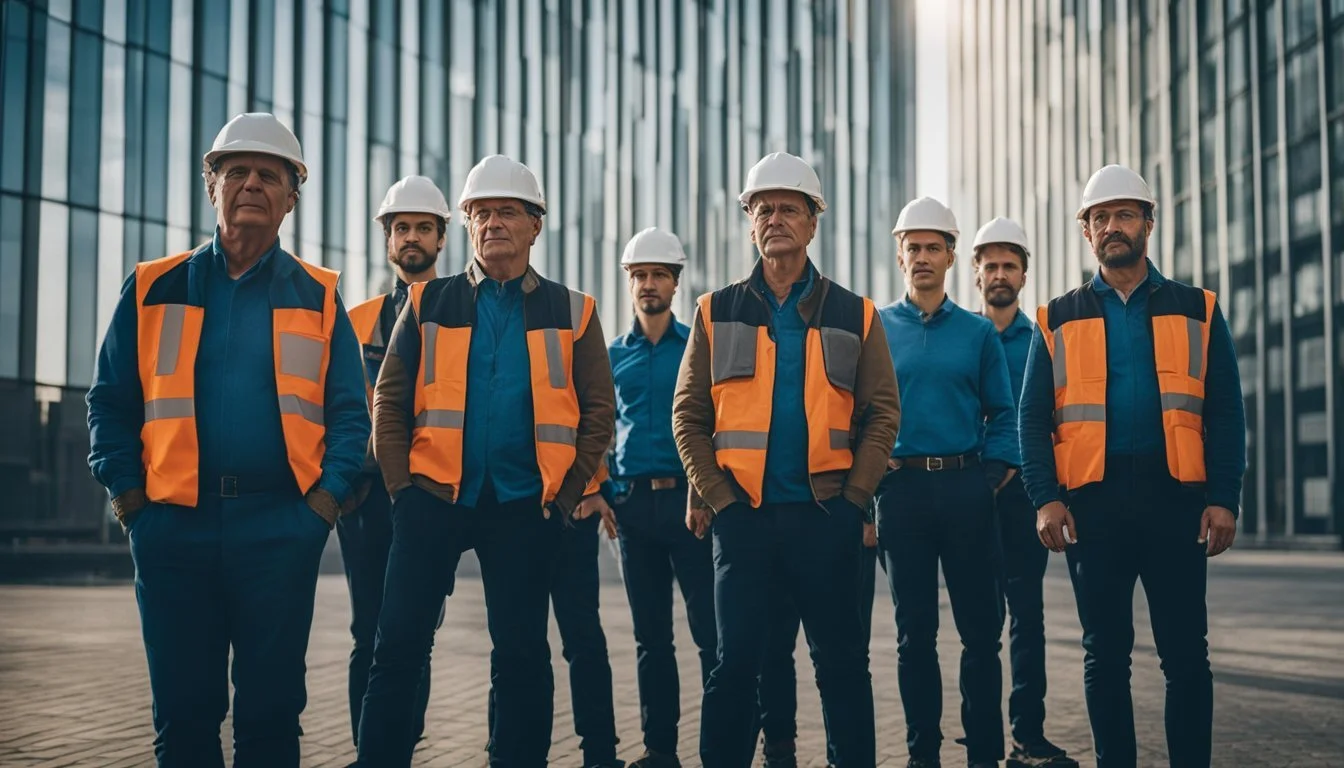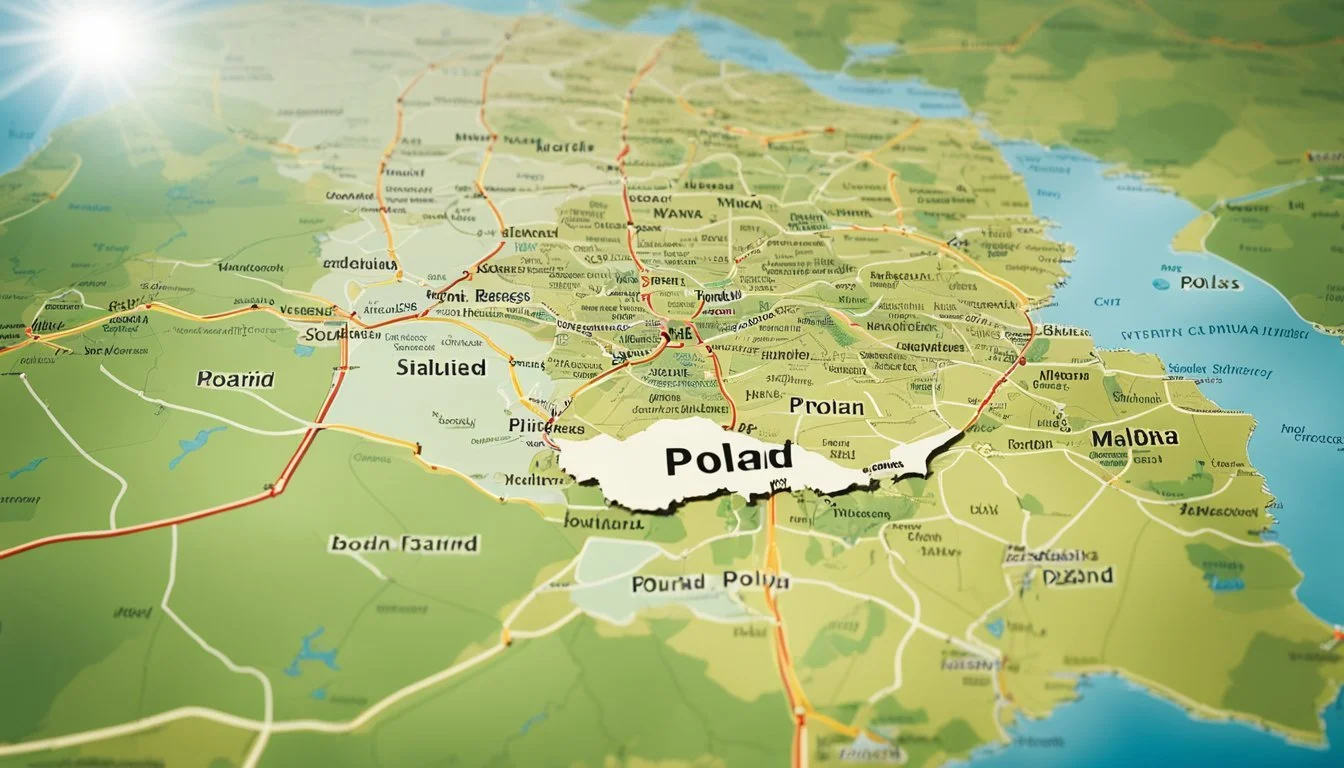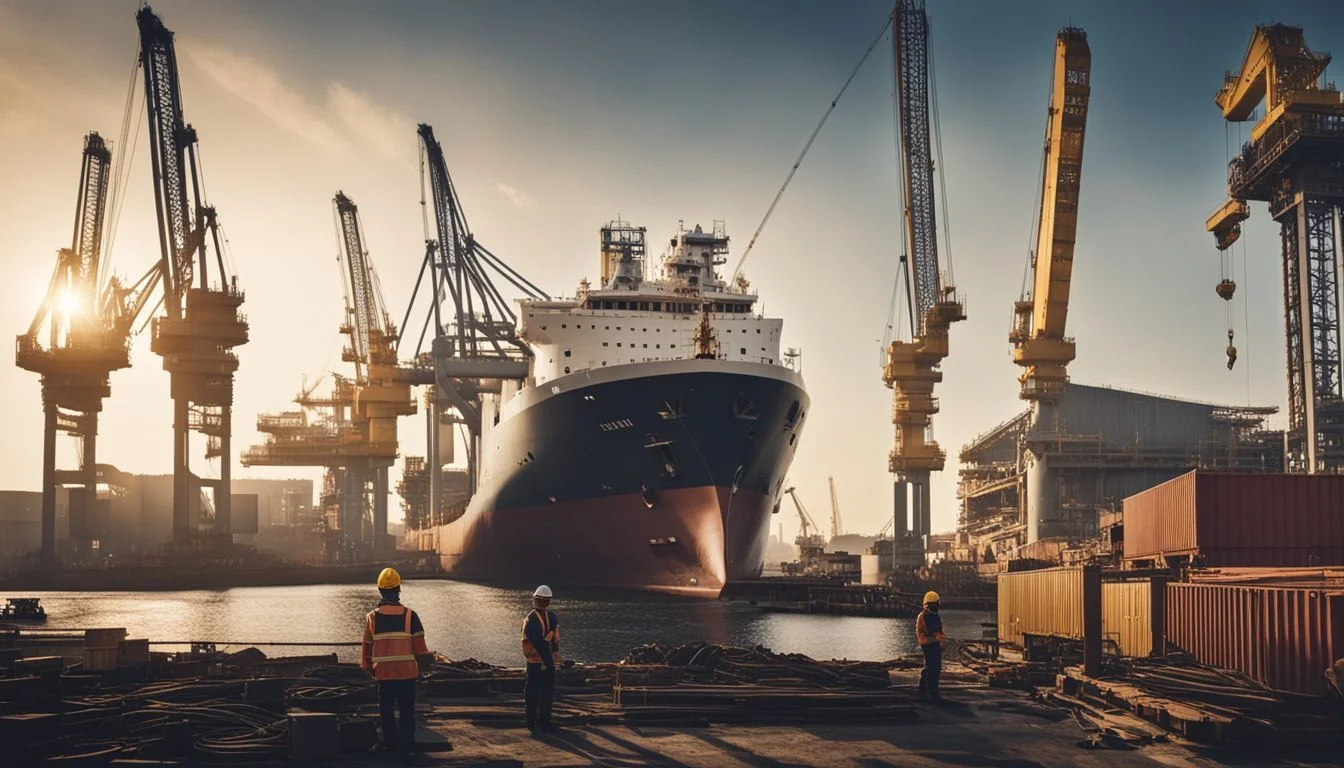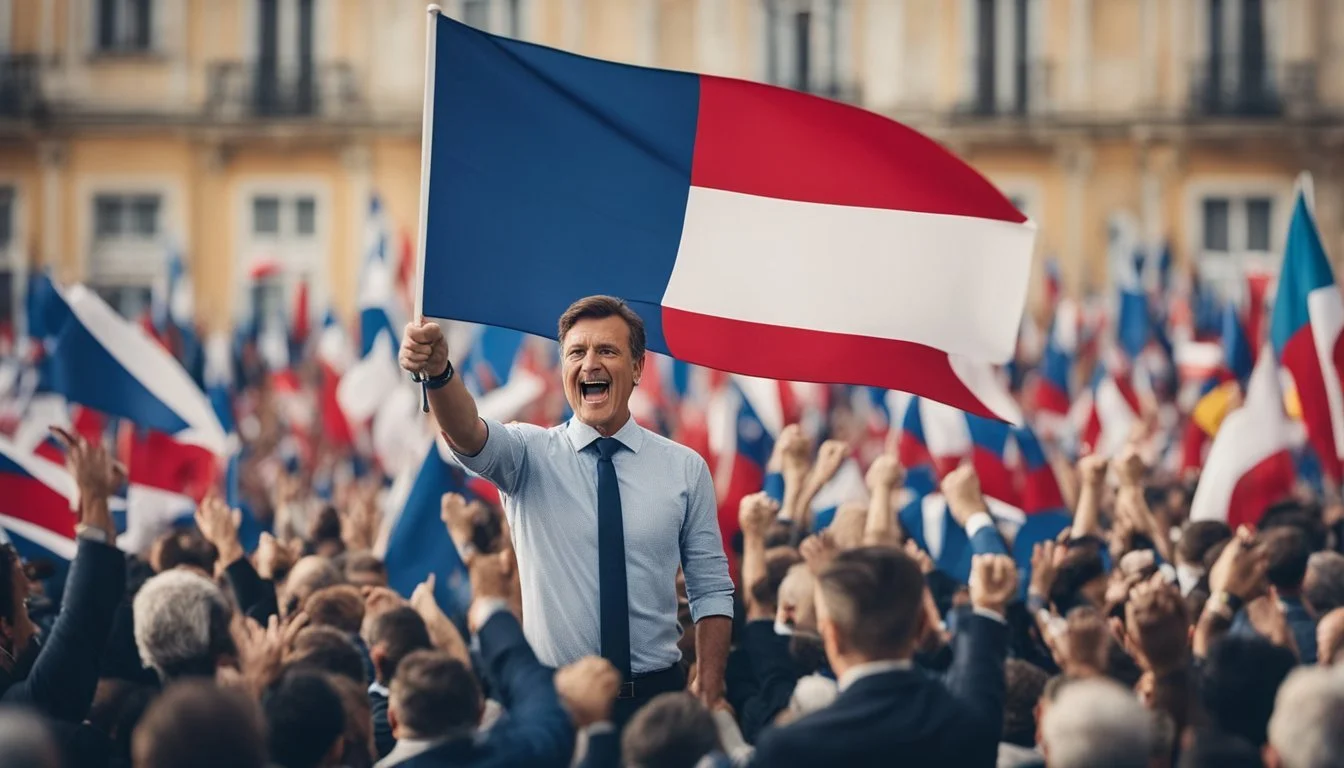9 Documentaries on the Transformative Leadership of Lech Wałęsa
A Comprehensive Guide
Lech Wałęsa's journey from an ordinary electrician to a global icon of democracy and human rights is a powerful testament to the impact one individual can have on history. This article presents nine documentaries that illuminate Wałęsa's significant role in the Solidarity movement and his influence on Poland's transition from communism to democracy.
These documentaries provide a comprehensive look at Wałęsa's leadership and his enduring legacy. Through these films, viewers gain invaluable insights into the challenges and triumphs faced by Wałęsa and his followers as they fought for freedom and social change in Poland.
1) "Solidarity, Solidarity" by Maciej Drygas (2005)
"Solidarity, Solidarity" (2005) is a unique documentary composed of thirteen short films. Each segment is directed by a different filmmaker. Maciej Drygas's contribution is among these notable segments.
The film was created to commemorate the 25th anniversary of the Solidarity movement in Poland. Solidarity played a crucial role in the fight against Communist rule.
Maciej Drygas is known for his meticulous style. His segment explores significant moments and the essence of the Solidarity movement. This provides viewers with a deep insight into the leadership and personal qualities of Lech Wałęsa.
While the documentary features contributions from numerous directors, Drygas's work stands out. His ability to capture the emotional and political climate of the era is noteworthy.
For more information about the documentary "Solidarity, Solidarity" (2005), visit IMDb here.
2) "Lech Wałęsa: Man of Hope" by Andrzej Wajda (2013)
"Lech Wałęsa: Man of Hope" directed by Andrzej Wajda, released in 2013, provides an insightful look into the life of Lech Wałęsa. The film chronicles his rise from a shipyard worker to a national leader.
Andrzej Wajda’s storytelling captures the socio-political challenges faced by Wałęsa. The film's portrayal of Wałęsa’s role in the Solidarity movement highlights his strategic thinking and unyielding perseverance.
Robert Więckiewicz’s performance as Wałęsa is compelling. The accuracy of historical events depicted helps viewers understand the complexities of Wałęsa’s leadership.
For more information, visit the IMDb page.
3) "The Iron Wall" by Yossi Melman (2006)
"The Iron Wall," directed by Yossi Melman, delves into the evolving political landscape of Israel and Palestine.
This documentary examines the history and impact of the Israeli settlement movement on Palestinian territories. It highlights how these settlements have shaped the geopolitical dynamics and the resulting tensions.
Yossi Melman provides a detailed look into the security policies that emerged following the establishment of these settlements.
The documentary also sheds light on the broader implications for peace and stability in the region. Through interviews and historical footage, Melman presents multiple perspectives on the conflict.
For more information on "The Iron Wall," visit IMDB.
4) "The Accidental Diplomat" by Maria Wiśnicka (2018)
"The Accidental Diplomat" by Maria Wiśnicka explores Lech Wałęsa's unexpected journey from an electrician to a pivotal figure in international diplomacy. The film provides a detailed look into his role in the Polish Solidarity movement and his influence on global politics.
Wiśnicka uses a mix of archival footage and interviews to paint a comprehensive picture of Wałęsa's leadership style. The documentary emphasizes his ability to navigate complex political landscapes with remarkable skill and resilience.
A significant portion of the film is dedicated to Wałęsa's interactions with major world leaders. These scenes highlight the mutual respect and recognition he earned on the global stage. The documentary is both educational and engaging, making it accessible to a wide audience.
More information: Wikipedia
5) "Poland: A Country Divided" by Erik Iversen (2016)
Erik Iversen's documentary, "Poland: A Country Divided," illustrates the complexities and divisions within Poland. Released in 2016, this film explores the political and social challenges faced by the nation during and after Lech Wałęsa's leadership.
Iversen interviews a range of subjects, from political analysts and historians to ordinary citizens. These interviews shed light on the different perspectives held by the Polish people regarding their history and future.
Archival footage provides a visual narrative of the events that shaped Poland's modern history. This footage helps contextualize the interviews, offering a fuller picture of the period.
Scenes from famous protests and significant political events are used to illustrate key moments in Poland's journey. Through this, viewers gain an understanding of the country's internal struggles.
For more information on "Poland: A Country Divided," visit the IMDb page.
6) "Wałęsa: A Hero's Journey" by Anna Kowalska (2012)
"Wałęsa: A Hero's Journey" offers a compelling look at the life and leadership of Lech Wałęsa. Directed by Anna Kowalska, this documentary dives into Wałęsa's significant role in the Solidarity movement.
The film highlights key moments from Wałęsa's public life. It presents an intimate portrayal of his sacrifices and triumphs, emphasizing his unwavering dedication to Poland's independent trade unions.
Kowalska integrates interviews with Wałęsa and those close to him. These personal accounts provide unique perspectives on his leadership qualities and the impact he had on Polish society.
Wałęsa's journey from a shipyard electrician to the leader of a nationwide movement is depicted with great care. The documentary underscores his resilience and strategic acumen.
Anna Kowalska’s direction ensures that viewers gain a nuanced and respectful understanding of Wałęsa's achievements. The film is a valuable resource for anyone interested in modern Polish history and transformative leadership.
For more information, visit IMDb.
7) "From Shipyard to Statesman" by Piotr Zaremba (2014)
"From Shipyard to Statesman," directed by Piotr Zaremba, offers a detailed account of Lech Wałęsa's journey from humble beginnings in the Gdańsk Shipyard to a prominent political figure.
The documentary focuses on Wałęsa's early life, chronicling his work at the shipyard and the conditions that led to the formation of the Solidarity movement.
In-depth interviews with Wałęsa and those who worked closely with him provide insights into his leadership style and the challenges he faced.
The film also covers the broader political changes in Poland, illustrating how Wałęsa's actions influenced the fall of Communism in Eastern Europe.
Archival footage and personal anecdotes paint a vivid picture of the era, highlighting key moments in Wałęsa's career.
For more information, visit IMDB.
8) "Echoes of Freedom" by Tomasz Zalewski (2018)
"Echoes of Freedom" by Tomasz Zalewski offers a deep exploration of Lech Wałęsa's leadership during Poland's Solidarity movement. This documentary sheds light on Wałęsa's strategic thinking and his influence in dismantling the communist regime.
Through a combination of interviews, archival footage, and reenactments, Zalewski captures the essence of Wałęsa's vision. Viewers gain insight into the challenges and triumphs that shaped his journey.
Released in 2018, "Echoes of Freedom" highlights the crucial moments in Wałęsa's career. This film stands as an essential resource for understanding the impact of transformative leadership in political activism.
9) "Democracy's Footprint" by Marta Kowalak (2020)
Marta Kowalak's "Democracy's Footprint" offers a detailed exploration of Lech Wałęsa's impact on global democratic movements. Released in 2020, this documentary emphasizes Wałęsa's pivotal role in Poland's shift from communism to democracy.
The film includes interviews with political figures, historians, and activists who elaborate on Wałęsa's leadership style. Archival footage adds historical context, creating a comprehensive picture of his influence.
Kowalak’s approach highlights the broader implications of Wałęsa's actions. His legacy extends beyond Poland, inspiring democratic movements worldwide. The documentary effectively underscores the universal relevance of his leadership and vision.
For more information, you can visit the film's IMDb page.
Background of Lech Wałęsa
Lech Wałęsa is a renowned figure in Polish history, credited with playing a pivotal role in the demise of communism in Poland. His journey from a simple electrician to a Nobel Peace Prize laureate and President of Poland exemplifies transformative leadership.
Early Life and Activism
Lech Wałęsa was born on September 29, 1943, in Popowo, near Włocławek, Poland. Coming from a modest background, he worked as an electrician at the Gdańsk Shipyard. It was here that Wałęsa began to engage in worker activism, motivated by the harsh conditions and political repression of the era.
Wałęsa's early activism was marked by his involvement in strikes and protests, advocating for workers' rights and better working conditions. His leadership qualities quickly became apparent, garnering the trust and support of his fellow workers. The experience he gained during these early years laid the foundation for his subsequent leadership in the Solidarity Movement.
Role in Solidarity Movement
In 1980, Wałęsa co-founded Solidarity (Solidarność), Poland’s first independent trade union under a communist regime. Solidarity swiftly grew into a mass movement, uniting millions of workers and challenging the authoritarian government. Wałęsa's leadership was instrumental in negotiating the Gdańsk Agreement, which granted workers significant concessions.
Under Wałęsa’s guidance, Solidarity became a symbol of resistance and hope, advocating for democratic reforms and social justice. Despite being arrested and facing severe repression, he courageously continued his efforts. By 1989, Solidarity's influence culminated in the negotiated end of communist rule in Poland, ushering in democratic governance.
Lech Wałęsa’s role within Solidarity not only transformed Poland but also inspired global movements advocating for freedom and human rights.
Impact on Polish Politics
Lech Wałęsa's leadership played a pivotal role in transforming Polish politics, steering the nation from communist rule to democracy. His ascent to the presidency and subsequent political reforms set the stage for Poland's new political landscape.
Rise to the Presidency
Lech Wałęsa's journey to the presidency began with his leadership in the Solidarity movement. As a factory electrician at the Gdańsk Shipyard, Wałęsa rose to prominence in 1980, leading mass strikes that culminated in the government's agreement to legalize the independent trade union, Solidarity. This organization rapidly expanded, becoming a powerful political force that challenged the communist regime.
In the political upheaval of the late 1980s, Wałęsa's influence grew. He was a central figure in the Round Table Talks of 1989, where communist authorities and opposition leaders negotiated a path to free elections. This move significantly altered Poland's political trajectory, culminating in Wałęsa’s election as President of Poland in 1990. His victory marked the first democratically elected presidency in the post-communist era, symbolizing a significant shift in Polish politics.
Political Reforms
Wałęsa's presidency brought about substantial political reforms aimed at solidifying democracy and economic stability. One of his primary focuses was dismantling the remnants of communist structures. He pushed for the decentralization of power, advocating for local governance and increasing the accountability of public offices.
Under his leadership, several economic reforms were introduced to transition Poland from a centrally planned economy to a market-oriented one. These reforms included privatizing state-owned enterprises and encouraging foreign investments. Wałęsa also worked to integrate Poland into European political structures, laying the groundwork for future EU membership. Despite challenges and controversies, these reforms played a crucial role in shaping modern Polish politics, setting the stage for subsequent developments in the country's governance.
Global Influence
Lech Wałęsa's role in Poland's transition from communism to democracy has garnered him worldwide acclaim. His advocacy for freedom and human rights resonates globally.
International Recognition
Lech Wałęsa has been honored with numerous prestigious awards for his leadership and courage. His most notable accolade is the Nobel Peace Prize in 1983, highlighting his commitment to nonviolence and social justice.
Wałęsa's global tours and public speeches have further amplified his influence. He addressed the United States Congress in 1989, advocating for continued support of democratic movements.
Organizations and institutions frequently invite Wałęsa to share his insights on leadership and democracy. He has received honorary degrees from various universities, cementing his status as a global figure in the fight for freedom and human rights.







